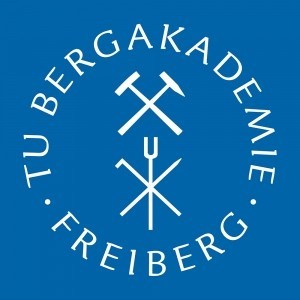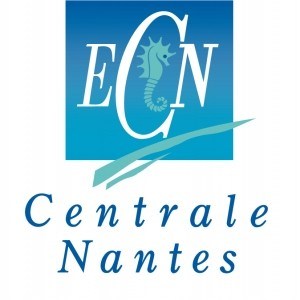Photos of university / #chalmers.university
Materials have always played a significant and defining role in human development, from the Stone Age to the material world of today. Materials are central to our prosperity and new materials hold the key to our future development. Material engineers therefore have an essential role in developing the materials of today and the future and in taking performance to the next level.
Programme description
Material related issues can be found in all areas of life and engineering e.g. in biomedical, telecommunications, aeronautical, construction, chemical and mechanical, and in all aspects of a products life, from an idea or discovery to a prototype or finished product and recycling. In the puzzle of innovation, material engineers focus on the application of materials, where they test, develop and modify materials that are used in a wide range of products, from jet engines and snow skis to smartphones and diapers.
The ultimate performance of most products and processes is limited by the performance of materials, which are linked to the structure and resulting properties of a material. This in turn is affected by how the material is manufactured and processed. Materials must also perform in an economical and societal context. The challenge for the materials engineer lies in understanding the relationship between these aspects of materials, to improve their properties and to communicate these findings.
In addition, materials science and engineering is a key technology for environmentally sustainable development, and the importance of materials engineering is therefore growing in society.
The overall aim of the Materials Engineering Masters programme is to offer both depth and flexibility in a comprehensive materials education focused on the application of materials. Courses are closely linked to the industry as well as contemporary research; the degree you receive here will have a wide application.
You will become an engineer of reality, a problem finder and developer both in theory and practice and besides becoming an expert on materials, you will also represent a bridge between researchers and constructors.
Career opportunities
The program prepares you for a professional role in fields like lightweight design, recycling, biodegradable materials or corrosion resistant alloys. Future opportunities can be found in: Product development and testing, Technical design, Process development, innovative business development, R&D, Engineering and problem solving and sustainable development.
Graduates of the Masters programme in Materials Engineering can also apply to the joint Chalmers Graduate School in Materials Science. On the PhD level, the cross-departmental graduate school in Materials Science provides genuine cross-disciplinary training and a common curriculum in materials science for PhD students from five different departments.
Educational methods
Contemporary challenges in materials cut across the traditional lines of engineering and science. Methods of modern materials engineering rely on the mix of competence and knowledge, presence where the problems occur, effective testing and model building. This is reflected in the education, which provides for example advanced experimental equipment, modern software for materials simulation applied on real material problems. In labs, with real life problems provided by the industry, you will learn through a make and brake pedagogy, exploring the limits of new materials and concepts through experiments in both theory and practice. We also emphasise that interdisciplinary intercultural international communication and teamwork are essential parts in successful projects.
Courses are run by faculty from departments of Materials and Manufacturing, Chemical and Biological engineering, applied Mechanics, Microtechnology and nanoscience, and applied Physics. Courses cover metals, ceramics, polymers and composites as well as topics of particular current interest in industry, such as material selection and design, environmental adaptation, failure analysis or materials innovation processes.
As a student, you will gain knowledge and skills to handle the complexity of materials problems and to find solutions to problems within the entire chain of a product from design, manufacturing and use to recycling. You will learn how to understand failures, select materials, develop processes and develop properties, making processes more efficient, cost-competitive, reliable and environmentally sustainable.
Research and industry connections
Chalmers has a record of high quality research into e.g. microstructural characterisation, surface engineering, mechanical behaviour, polymer processing and synthesis, high temperature corrosion, powder metallurgy, biomaterials and liquid crystals. At Chalmers, PhD students are involved in teaching, and masters students can perform small projects as well as large diploma projects within on-going research.
We also cooperate with large and well-established companies and institutes such as Volvo, Volvo Cars, GKN Aerospace, SAAB, SKF, SCA, Sandvik and SWEREA, but also smaller young entrepreneurial companies such as ARCAM.
Courses take place in several departments at Chalmers, cooperating within one of our Areas of Advance - Materials Science.
First Year
AUTUMN TERM Study period 1
Compulsory courses
- Metals engineering, part A, Examination
- Metals engineering, part B, Laboratory
- Polymer processing and properties, Examination
Elective courses
- Phase transformations, part A, Examination
- Phase transformations, part B, Project
Voluntary courses
- Preparatory course in Matlab, Project
AUTUMN TERM Study period 2
Compulsory courses
- Materials characterisation and failure analysis, part A, Examination
- Materials characterisation and failure analysis, part B, Laboratory
- Mechanical performance of engineering materials, part A, Examination
- Mechanical performance of engineering materials, part B, Laboratory
- Materials selection and design, Project
SPRING TERM Study period 3
Elective courses
- Corrosion, Examination
- Ceramics engineering, part A, Examination
- Ceramics engineering, part B, Laboratory
- Biological materials, Examination
- Environmentally adapted product development, Project
- Advanced analysis methods, Project
SPRING TERM Study period 4
Elective courses
- Semiconductor materials physics, Examination
- Liquid crystals, physics and applications, Examination
- Material mechanics, Laboratory
- Material mechanics, Intermediate test
- Composite and nanocomposite materials, Examination
- Metal processing: Casting, forming & joining, Written and oral assignments
- Functional materials, Examination
AUTUMN TERM Study period 1
Elective courses
- Fundamentals of micro- and nanotechnology, Examination
- Phase transformations, part A, Examination
- Phase transformations, part B, Project
- Manufacturing processes, part A, Examination
- Manufacturing processes, part B, Laboratory
- Practical leadership in innovation, Project
- Practical leadership in innovation, Intermediate test
- Modern imaging, spectroscopy and diffraction techniques, Examination
- Fatigue and fracture, Examination
AUTUMN TERM Study period 2
Compulsory courses
- Tailored materials and commercialisation aspects, part A, Examination
- Tailored materials and commercialisation aspects, part B, Project
Elective courses
- Materials selection and design, Project
- Metal cutting, Project
- Materials in medicine, Examination
SPRING TERM Study period 3
SPRING TERM Study period 4
Diploma thesis
- Master's thesis in Chemical and biological engineering, Diploma thesis
- Master's thesis in Materials and manufacturing technology, Diploma thesis
- Master's thesis in Materials and manufacturing technology, part A, Diploma thesis
- Master's thesis in Materials and manufacturing technology, part B, Diploma thesis
Important: Applications for scholarships should be made along with the application for Master's studies. Students should not wait until they receive an admission to do so.
The Avancez Scholarships are 75% tuition fee waivers awarded by Chalmers University of Technology and are funded by the Chalmers Foundation. These scholarships are available to all students who are liable to pay tuition fees i.e., students with non-EU/EEA nationality.
The IPOET (International Programme Office for Education and Training) Scholarships are 75% tuition fee waivers funded by the Government of Sweden. They are awarded by Chalmers University of Technology and available to nearly all fee-paying students, with the exception of 12 countries.
The Mölnlycke Health Care Scholarships are 100% fee tuition waivers with possibilities for summer internships and a final master's thesis project.
The Sievert Larsson Scholarship Fund (within Friends of Chalmers) offers a 100% tuition fee waiver and living expenses to students of Thai nationality who aim to study on a Masters programme at Chalmers University of Technology.
The US Friends of Chalmers Scholarship is a scholarship comprising USD 35 000 (i.e. a reduction of the tuition fee by USD 8750 per semester) and is awarded to one student with US citizenship.
The Volvo Car Corporation Scholarships are 100% tuition fee waivers awarded to 2 Chinese students with the guarantee of participation in the VESC (Volvo Engineering Student Concept) programme which includes a summer job, master thesis project, mentorship and possible employment at Volvo Car Corporation.
The Volvo Group Scholarship Programme is a 100% fee tuition fee waiver awarded to students of Indian nationality and Chinese nationality. The Scholarship includes possibilities for internships during the summer, a final Master thesis project and mentorship.
Scholarships that will not be offered in 2014
The Chalmers MasterCard Scholarship (will be offered again in 2015) Available biennialy for a Master's student from Central America, South America or Mexico. The scholarship comprises a 280 000 SEK reduction of the tuition fee (70 000 SEK reduction/ semester).
The FlexLink Scholarship (not available in 2014) for a Master's Student from China is a 100% tuition fee waiver along with possibilities for internship and a final master thesis project.
Note: Being granted alternative funding from external patrons does not affect the possibility of obtaining scholarships from Chalmers as an applicants financial status is not taken into account during the nomination process.
Scholarships for current students
Adlerbert 60th Anniversary Scholarships - Will be offered for the first time during 2014 to fee paying Master's Programme students who were admitted Autumn 2013, including scholarship holders whose scholarships do not include costs of living coverage. This means that, for instance, holders of Swedish Institute scholarships and Sievert Larsson, version 2 scholarships will not be eligible to apply. In order to be eligible the applicant must have passed at least 60 credits during the first year of studies. The scholarships, which amount to 60 000 SEK each, will be awarded based on the applicants' cumulative grade point average . Around 10 to 20 scholarships will be offered in 2014. More information about how to apply, etc., will be published soon.
Adlerbert Foreign Student Hospitality Fund - Only open for international students who have been admitted to, and enrolled on, a Master's Programme at Chalmers. Thus, prospective students cannot apply. Students can be awarded the scholarship a maximum of two times. The application period opens in late January and closes in late February. Consequently, it is only possible to apply during this period of a student's first and second year.
Scholarships administered by the Swedish Institute
The Swedish Institute, a government agency, administers over 500 scholarships each year for students and researchers coming to Sweden to pursue their objectives at a Swedish university. Use their online guide in order to find out if any of the Swedish Institute scholarships are available for citizens of your country at your intended level of study.










